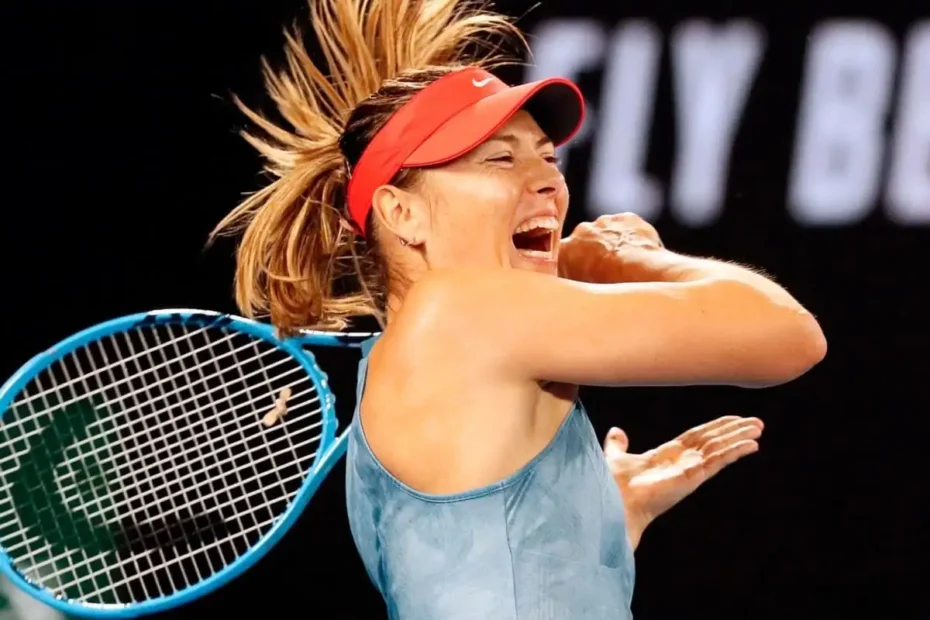Tennis is a fast-paced sport that requires intense focus, quick reactions, and explosive power from players’ entire bodies. When top tennis players unleash powerful shots, they often accompany the effort with an audible grunt. While grunting may seem unnecessary to some spectators, players and sports scientists have revealed several important physiological reasons for why tennis players vocalize during their swings.
Reason 1: Energy Transfer
One key reason players grunt is to help efficiently transfer energy from their legs and core into the swing. A grunt serves to exhale air forcefully from the lungs during the moment of impact. This coordinated exhalation aids the transfer of energy generated from the legs and hips through the torso and into the arm and racquet. Without this grunt, much of the stored power would dissipate rather than being channeled into the ball. Numerous biomechanical studies have shown grunting allows for up to a 10% increase in racket speed and ball velocity off the strings.
Reason 2: Increased Ball Speed
Closely related to energy transfer is the fact that grunting has been shown to increase ball speed off the racquet. Players are able to swing harder and faster when grunting because it helps them stay coordinated and keep their body parts working in sync during the dynamic motion. The exhalation of air assists the transfer of rotational energy from the lower body into the arm swing. More power into the swing means more power into the ball. Top players like Maria Sharapova and Victoria Azarenka have been scientifically proven to hit balls over 10 mph faster when grunting versus being silent.
Reason 3: Focus and Concentration
Another key reason for grunting is that it helps players maintain intense focus and concentration on their shot. The sudden exhalation of air acts like a trigger that cues the body to swing and alerts the mind that the hit is coming. Neurological studies have shown grunting activates the same parts of the brain associated with focus, concentration and motor control. It gives players an audible marker to time their swing and keep themselves locked in on each point. Without this audible cue, it would be easier for thoughts to wander in the heat of competition.
Reason 4: Momentum Shift Alert
Grunting also serves to signal the shift of momentum that occurs during a player’s swing. The exhalation alerts the opponent of when weight is being transferred off the back foot and into the ball. This gives them less time to react. It also helps the player themselves to better sense when their body weight and balance is optimally shifting into the shot. Signaling this change of momentum is thought to improve coordination and consistency from stroke to stroke.
Reason 5: Intimidation Factor
There is also a psychological component to grunting that should not be overlooked. The loud exhalation can intimidate opponents and increase fear and doubt in their minds. It signals the player is putting everything they have into a shot. This intimidation factor puts added pressure on opponents and can influence outcomes, especially in close matches. Players like Serena Williams have dominated not just with their skills but also by imposing their will and presence on others through vocal grunts and shouts.
Reason 6: Muscle Coordination
The act of grunting also aids in coordinating the many different muscle groups involved in a tennis swing. It helps fire the larger muscles of the legs and glutes in precise synchronization with the smaller muscles of the core, back, shoulders and arm. Without this audible cue, it would be harder for the dozens of engaged muscles to fire in the optimal sequence needed to generate and transfer power. Grunting provides an audible marker that different parts of the body can subconsciously time their contractions to for maximum efficiency.
Reason 7: Automatic Response
For many players at elite levels, grunting has also become an automatic response that is no longer a conscious decision. It is a natural consequence of the enormous physical effort, muscle coordination and explosive power involved in their swings. The intense exhalation of air occurs subconsciously as an automatic response to the extreme effort. Players are often not even aware they are vocalizing until after the point is over. It is simply a natural part of the strenuous physical output needed at the highest levels of the game.
Reason 8: Adrenaline Release
There is evidence that grunting may also serve to help players release built-up adrenaline and other stress hormones during intense points or matches. The sudden exhalation of air, similar to a primal scream, provides a physical outlet for the surge of hormones coursing through an athlete’s body when the pressure is on. This adrenaline release could potentially help players maintain focus, consistency and shot tolerance deeper into important matches.
Reason 9: Injury Prevention
Finally, grunting may assist in preventing injuries by helping players monitor their exertion levels and avoid over-swinging. The loud exhalation gives an audible indicator of how much effort is being expended on each shot. This feedback helps players gauge their energy reserves and avoid surpassing their physical limits, which could increase injury risk. Grunting provides a way for players to consciously or subconsciously regulate their effort by listening to the volume of their own exhalations.
While tennis grunting may seem unnecessary to some, the physiological reasons for why players vocalize have been extensively studied. The explosive power, rapid movements, and intense focus required at elite levels make grunting more than just a psychological tactic – it is an important part of how the body produces, transfers and monitors energy during the strenuous motions of a tennis swing. As the scientific understanding of biomechanics, neurology and sports performance continues advancing, more reasons for grunting are likely to be revealed. But for now, the key factors discussed provide compelling evidence for why grunting has become an ingrained part of the professional game.
